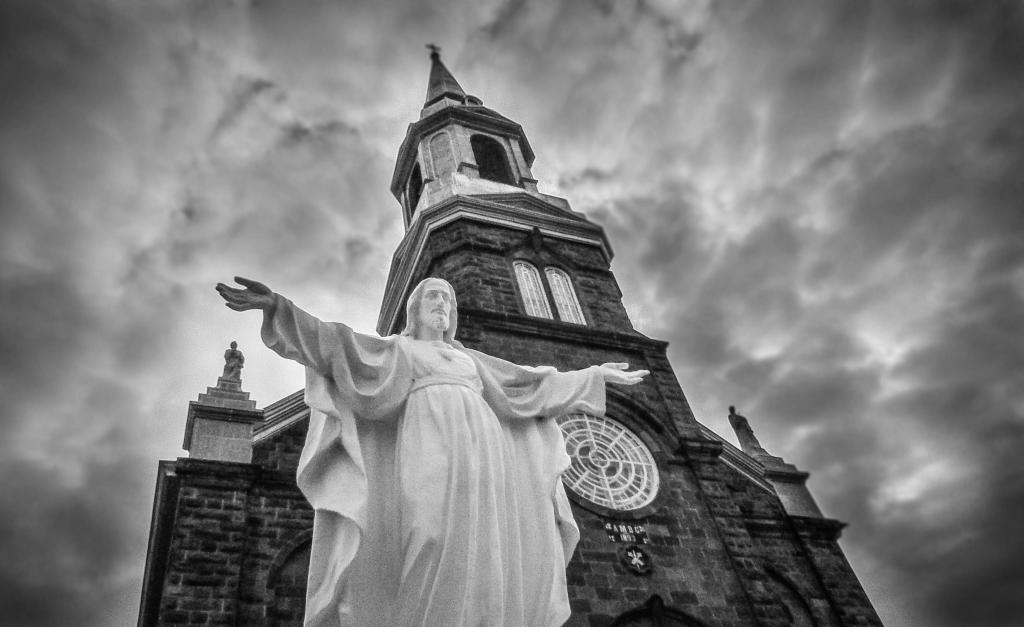I have resisted doing a study of Revelation, largely because I never wanted to devolve into the pop theology that has consumed the attention of much of Western Christianity. I’ve dabbled in it from time to time, including a study of the seven churches a few years ago. I’ll go over that material again in coming weeks, I’m sure. However, last week my small group—the best small group ever—asked if we could dig into Revelation and I just had a different feeling.
So, here we go. Here’s the lesson for the first week.
***
Blessed is the one who reads aloud the words of this prophecy, and blessed are those who hear it and take to heart what is written in it, because the time is near. Revelation 1:3
An Introduction
The Book of Revelation was one of the least read and most feared books of the Bible until recent years. Since the publishing of The Late Great Planet Earth in the 1970s, and the Left Behind novels in recent years, Christians around the world have begun to study the last book of the Bible with an eye on history and current events. Now, it’s no longer one of the least studied but it still frightens a lot of people.
In this study, however long it takes, we are going to see that Revelation is a book of hope—not fear.
Part of the problem with the modern fascination with Revelation is the focus on what we call the rapture—a word that doesn’t even appear in the Bible. It is alluded to, and we will cover it, but it would be an injustice to scripture to focus only on that. As the Methodist church teaches, our focus as Christians should be on what we do now to minister to others, not too focused on end times. Revelation is a book of symbolism, beauty and victory for those who seek Christ. Contrary to what many believe, Revelation is not hard to understand—if you study it with scripture. It is a short book meant to be read in one sitting. Even though we will study it over several weeks, we should all commit to sitting down and reading it start to finish at least once—hopefully several times—during this time.
Revelation has a positive message of truth for all generations of believers. Even so, it was almost not in the Bible as we know it today. It was the last book added to the canon and only after much debate and protest. The Eastern Orthodox church resisted it and, even today, do not read from it in church. Martin Luther said it was “neither apostolic nor prophetic” and it is the only book of the Bible that John Calvin did not write a commentary on. Wesley wrote a commentary on it, which you can find here.
The title of Revelation comes from the first word of the book, apokalypsis, a Greek word meaning “unveiling.” It is dualistic in philosophy meaning it depicts two worlds, one good and one evil struggling against each other. It also depicts two ages, the church age and the coming age. Much of Greek philosophy was dualistic, so the readers in that time would have understood that approach. Revelation is written in three distinct styles: as a letter, as apocalyptic writing, and prophetic writing. There are several ways to interpret Revelation:
Historicist—Revelation is a broad view of history—past and present—and equates symbols with real people and events.
Preterist—interpret Revelation entirely as it relates to the 1st century AD and the struggle against Nero and Rome.
Amillennialist—the belief that the millennium began with the current church age, the 1000 year reign is symbolic spiritually and Christ returns physically at the end of the age to claim his church.
Futurist—These millennialists believe Revelation deals entirely with future events.
Idealists—believe Revelation does not refer to actual people or events, but is an allegory of the spiritual path and the ongoing struggle between good and evil.
What type of interpretation best describes you? Do you fit into more than one category (many people do)? Discuss.
Read chapter 1 verses 4-6. How does the description of believers as a “kingdom and priests” make you feel? How do you think it made the discouraged people of Jerusalem feel when the book was written? Remember when we talked about baptism as an ordination? We ARE a priesthood of believers.
Beginning in verse 12, John describes the vision of Jesus. What did his voice sound like? What did he look like? What was John’s reaction? Have you ever met a famous person and been completely surprised by their appearance (good or bad)? Discuss. John was overwhelmed with meeting Jesus. Do you ever get overwhelmed with Jesus?
Jesus is described as standing in the midst of seven lampstands. Symbolically, what are the lampstands? What does it mean to you that Jesus stands among them?


Leave a comment